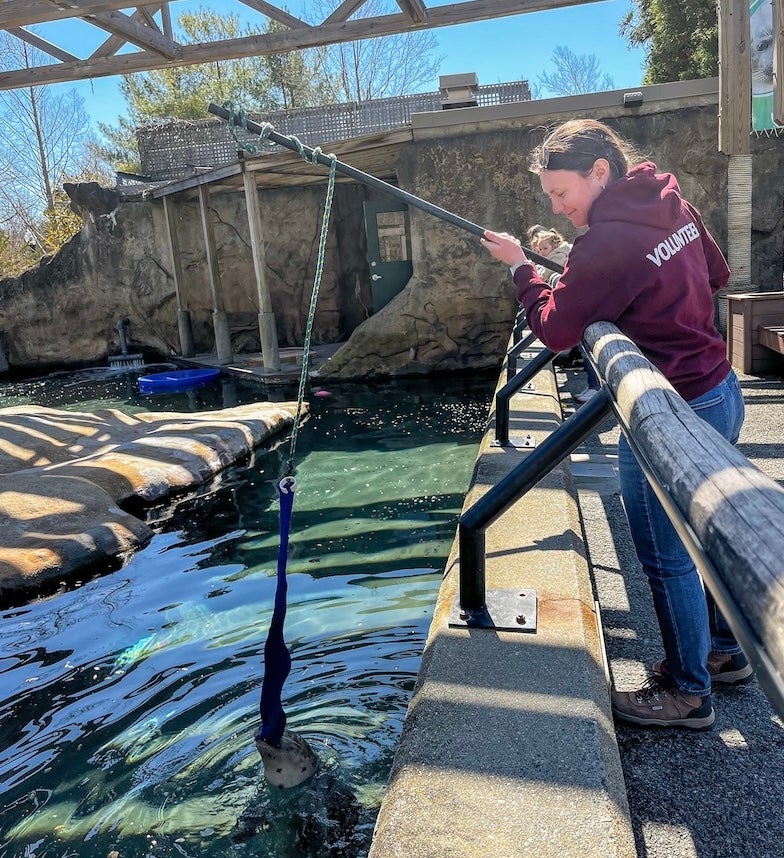Prepping harbor seal diets, brushing the seals’ pool, cleaning filtration in the Rainforest tank, and observing animals such as a coyote and Canada lynx. This was all in a day’s work for Kylie Mastropolo, an animal science and technology major from Rockaway, NJ. She spent her spring semester as an animal behavior intern with the Buttonwood Park Zoo in New Bedford, MA, conducting behavioral observations on some of the animals who call the zoo home and assisting zookeepers with husbandry tasks.
Buttonwood Park Zoo has been collaborating with Justin Richard, assistant professor of fisheries, animal, and veterinary science, since 2021 on this internship, specifically designed for URI students such as Mastropolo.
“One of the most rewarding parts was observing the harbor seals over time and learning to identify their individual personalities and behavioral patterns,” Mastropolo says. “It was fascinating to see how each seal responds differently to enrichment or training sessions.” While animal behavior might seem like it is mainly instinct, Mastropolo points out that it’s actually really complex. “Animals have personalities, make decisions, and react to their environments in really specific ways,” she says. “It’s not just random–they have preferences and emotions, and their behavior can tell you a lot about how they’re feeling.”
When it comes to learning about animal behavior, internships bring coursework to life in a way that can’t be replicated in a classroom. “Seeing real-time examples of animal behavior, enrichment strategies, and welfare considerations helped me connect theory to practice,” Mastropolo says. “Concepts like operant conditioning, stereotypic behavior, and species-specific enrichment suddenly make so much more sense when you’re seeing them unfold at the zoo. It’s also made me a more curious and critical observer. I find myself asking deeper questions and thinking more practically about how animal care decisions are made.”
After she graduates next year, Mastropolo is hoping to become a zookeeper and eventually a marine animal trainer. “I’ve always been fascinated by the bond that can form between trainers and animals and how training can be used to support both health and mental stimulation,” she says. “Getting to build relationships with animals while also contributing to their care, enrichment, and behavioral health is exactly the kind of work I want to do.”
Hands-on experiences are a crucial step on the path. “Students in this internship gain experience using the science of animal behavior to inform the care of a wide range of animals, skills that are highly valued in this competitive and rewarding field,” says Richard. As she built connections with professionals in the field, Mastropolo says she now has a better understanding of the day-to-day reality of zookeeping and behavioral research. “It helped me determine that I see a future career for myself caring for marine mammals,” she says. “For that I want to give a huge thank you to the staff at Buttonwood Park Zoo for being so welcoming and supportive. It’s been an incredible learning experience, and I feel so lucky to be a part of it!”

